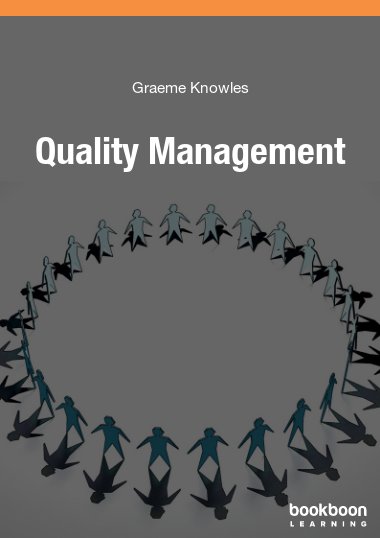This study guide is designed to provide an overview of the key elements, important historical context and current debates in the field of Quality Management. It aims to give a coherent view of the underlying principles of quality management, and how these relate to practical application in a range of organizations. The tools and techniques which support the principles are not covered in detail in this guide, More information on these can be found in the companion guide: “Six Sigma: Principles and Practices” also available at Bookboon.com.
The guide starts with a development of the theory in each area and then provides a contextualisation which considers what the theory might mean for organizational practice. Due to the complexity of many of the issues addressed, it is possible to write much more on any single topic but I have tried to cover most of the key points in order to provide a foundation, and further literature linked from the text allows the reader to investigate any topic in more depth if they wish. Finally, at the end of each chapter there are a number of questions for you to develop your thinking in the area.

